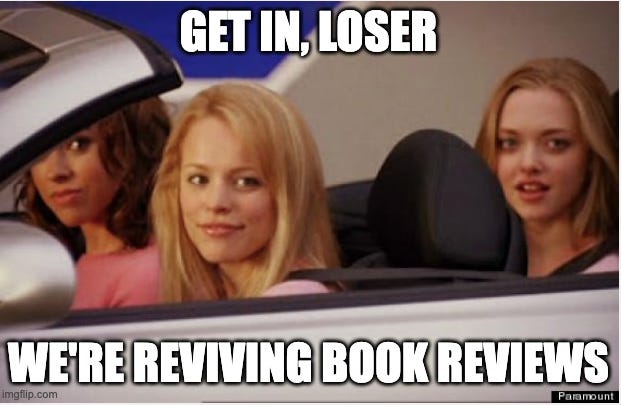The Mars Review of Books is an in-print and online magazine hosted on Urbit. The MRB has become synonymous with pushing literary and cultural boundaries through an expansive list of diverse contributors and topics of review. Born out a failing institutional and legacy publication world, the MRB aims to revitalize and rejuvenate the landscape through creating space for critical thought, review, and opinion.
Find the MRB on Instagram, Twitter and more importantly on Urbit! Pick up issue 2, subscription, or even a planet at marsreview.org.
Urbit group: ~bidbel/a
Iceberg Anthro: Who are you and what do you do?
Noah: I’m Noah Kumin and I’m the Editor in Chief of the Mars Review of Books.
IA: In one sentence how would you describe the publication?
NK: The Mars Review of Books is a magazine in print and on Urbit.
or
We had a lover’s quarrel with the world.
IA: What else do you do/are involved with beside the MRB?
NK: I write essays and fiction. I’ve got a book-length history of technology called The Machine War which I’m publishing serially at machinewar.substack.com.
IA: How many people are behind the Mars Review of Books?
NK: We have a very talented designer and web editor who lead on production of the print edition and the digital edition, respectively. On the masthead you’ll see several others who have made essential contributions to the project. For now I’m the only one working on it full time.
IA: What spurred you in starting this project?
NK: Today, despite the many talented writers on their rosters, legacy magazines find themselves on a race to the bottom, in order to succeed in the politicized, clickbait culture of the internet age. Meanwhile, independent writers outside that system, with insight and expertise on sensitive topics, are relegated to ephemeral media like Twitter and podcasts. I set out to create a review that would combine the best of these separate worlds and leave out the worst. It ought to be the canonical place for sense-making on subjects of the public interest and the most interesting place for stylish criticism on literature and art.
IA: Honestly I feel like the best place to start is with the opening Letter to the Reader in the first issue. It’s direct to the point, concise, and really answers the question of what Mars Review intends to do. It feels more akin to a manifesto, potentially even militant(not in a bad way), than a letter. Why did you feel it so important to set the tone in this manner?
NK: Thanks. I didn’t mean to sound militant. I was just trying to explain what I was up to. The questions that piece addresses are important to me and I suppose that comes through in the writing.
IA: I loved being able to feel that passion/importance in the letter to the Readers. Why do you find book reviews important? And I guess a continuation or tangent to that is why do you feel like book reviews are a creative/artistic medium?
NK: Book reviews are important because they create the conditions for a society of readers, however small, that is capable of serious critical thinking. At the same time, good book reviews are also themselves works of art, and constitute links in the endless chain of literature.
IA: You identified the third issue with modern book reviews as “all writing is prayer”. That statement has some incredible power behind it. I was wondering if you had any thoughts or insights on this “problem” now that you just released issue 2. Do you feel like any prayers have been answered or actualized? Has anything changed?
NK: I was probably exaggerating a bit. Some writing is not prayer. Grocery lists, for instance. But literature has a concrete historical relation to prayer and to ritual. This is the great subject of the late Italian writer Roberto Calasso, whose books I’ve been devouring lately. We think of literature as cousin to everyday speech but actually it is the child of ritual. And book reviews themselves can be part of this literary tradition of ritual magic, because literature—unlike the rituals of the ancients—is a ritual that can take any form.
IA: Urbit is an incredibly ambitious and beautifully designed project. Do you feel any pressure to match that sort of drive and undertaking? Is it motivational at all?
NK: I feel an obligation to take my work seriously and to treat it as something that might be durable across generations—because that’s how the people building Urbit treat their own work.
IA: I guess this is a nice segway into the culture within the MRB. The variety of articles within the pages is quite mind blowing. Everything from an article written by the bassist of Interpol, to articles on Autism, the decline of the petrodollar, the Network State, Angelicism, and more. How do you manage to capture such broad topics/articles and writers?
NK: I just commission what’s interesting to me. I learn a lot from a wide variety of intelligent people around me, on Urbit and elsewhere. In Martin Scorcese’s documentary feature about the New York Review of Books, which has been scrubbed from the internet (because Norman Mailer features prominently? Because Yasmine El-Rashidi patiently explains how the Arab Spring was an invention of Western journalists?) the writer Zoë Heller gives a very honest answer about why she read the NYRB: She read it to get an education. I don’t think people can get a good education anymore from the prestige publications—despite the fine writing, there are too many important subjects that they omit or write about only from a rote, ideological perspective—and so I thought I’d try my hand at curating a more honest and interesting range of work. Some people get that curation from Twitter or places like that—but on Twitter the risk is that ideas are presented in too haphazard or unwieldy a manner for anyone to really grab ahold of, and so you end up grasping nothing at all.
IA: One of my favorite things about the Mars Review of Books is how in an age of clickbait, you manage to create a publication that encompasses pieces of writing that some may consider taboo/untouchable without it feeling like a publicity stunt. How has it been treading this fine line? Do you ever get any pushback from people?
NK: Thank you. Obviously I don’t consider any subjects untouchable. "Nothing human is alien to me." But there are plenty of subjects about which I would not commission pieces because they’re not worth anyone’s time. To be boring is the only taboo. Yes, I have gotten pushback although that’s really too muscular a word for the way these tetchy, small-minded people express their displeasure.
IA: Speaking of untouchable, it seems like there’s a resurgence in what I’d call artistic freedom or maybe a forsaking of “boundaries”. Do you feel like we are entering a sort of revival in creativity and culture?
NK: It would be nice to think so, but no, not really. Serious writing is becoming much less lucrative, much more of a niche activity, and the bright spot is that it may thus become less beholden to market trends and academic fashions.
IA: Do you have any thoughts on immoral or “bad” art having a place in the greater artistic landscape and conversation? Does anyone have the authority to deem art good or bad?
NK: All bad art is immoral if it’s intentionally cheap or specious and not merely incompetent, because in that case the artist is abandoning his sacred duty in favor of fake plastic worldly laurels. Otherwise there is no such thing as immoral art. Sensitive, discerning people have not only the authority but the obligation to deem art good or bad.
IA: I cant remember who said it but, I was listening to a podcast recently where the guest stated that “scared artist cannot make good work”. Fear is the last thing that comes to mind when thinking about the MRB. I was just curious if you had any insight or thoughts on the idea of fear limiting creativity and artistic output?
NK: Fear is the mind-killer.
IA: Kind of taking a step back, do you have any opinions on the relationship between technology and culture? Are they symbiotic or parasitic to each other? Is there any relationship at all??
NK: This is a question that would take a book to answer! I tried to address some of these questions in The Machine War.
IA: No pressure to get too philosophical or anything. We live in crazy times, some people say we are entering a dark age and others argue that we may be entering a renaissance. Do you have a take on this and where we’re headed?
NK: Both could be true. “Some are Born to sweet delight / Some are Born to Endless Night.”
IA: As someone actively putting out physical editions of the MRB, does it feel like print is having a moment right now?
NK:Print is Lindy. People are realizing that it’s much easier to memory hole digital media, or to subtly edit published content after the fact. But the only things censors can do to print publications is burn them.
IA: If the MRB is remembered for one thing what do you hope that is?
NK: Carrying on the tradition of serious book criticism into this century.
IA: I’ve been dying to know. Whats the story behind the cover of the first issue?
NK: It’s meant as a sly nod to the most notorious of NYRB covers, which was printed during the Newark riots and depicted instructions on how to make a Molotov Cocktail. The artist claimed that the instructions as given would not actually work, but I never heard that confirmed or denied by a reader attempting to iterate.
IA: Have any good reading recommendations?
NK: Colin Wilson, Ioan Culianu, Roberto Calasso.
IA: If you could have one person write a review for the MRB, dead or alive, who would it be?
NK: I wouldn’t mind having Edmund Wilson or Elizabeth Hardwick in the ol’ rolodex.
IA: What does the future of the Mars Review of Books look like?
NK: We’re just going to keep doing what we’ve been doing. The success of the first two issues has proved that there is a niche for this sort of thing. We’ll never have a million subscribers and, frankly, we don’t want a million subscribers. We want a coterie of interesting and intelligent people who take ultimate questions seriously and want to engage with the world at a higher level than other media make available. Those are the people who subscribe to the MRB and join the associated Urbit group. So far, there’s been a lot of excitement about the project—and strong responses from various camps—and that makes me feel sanguine about the future.







Great piece with Noah. Mars ROB is doing important work.